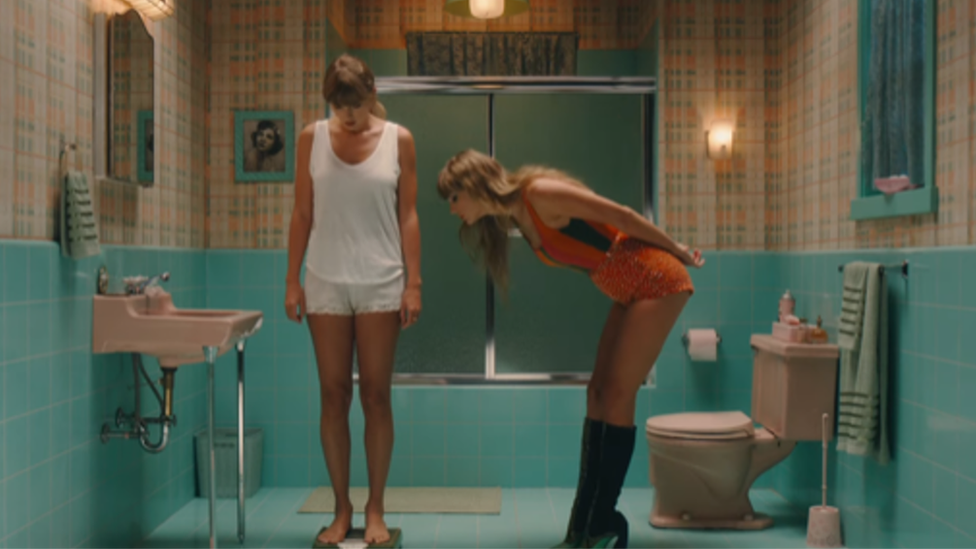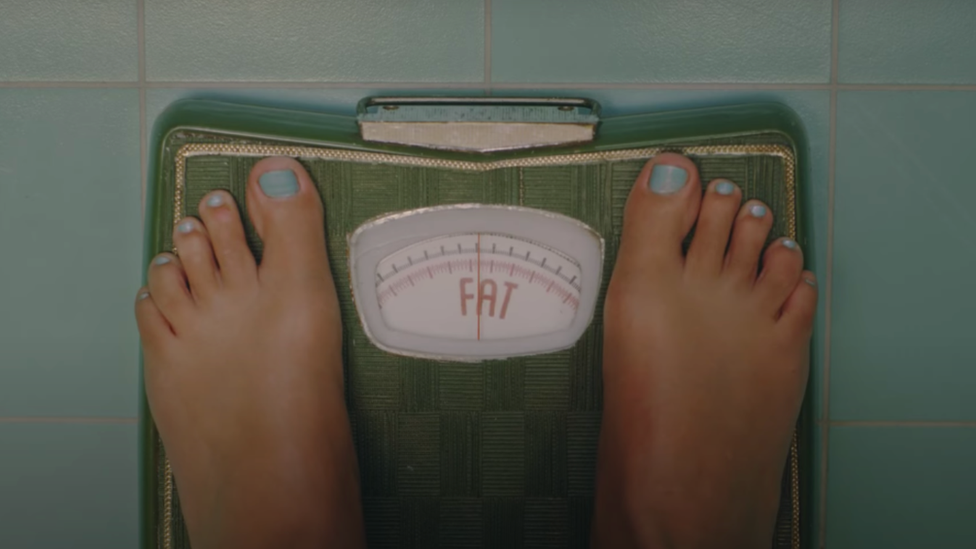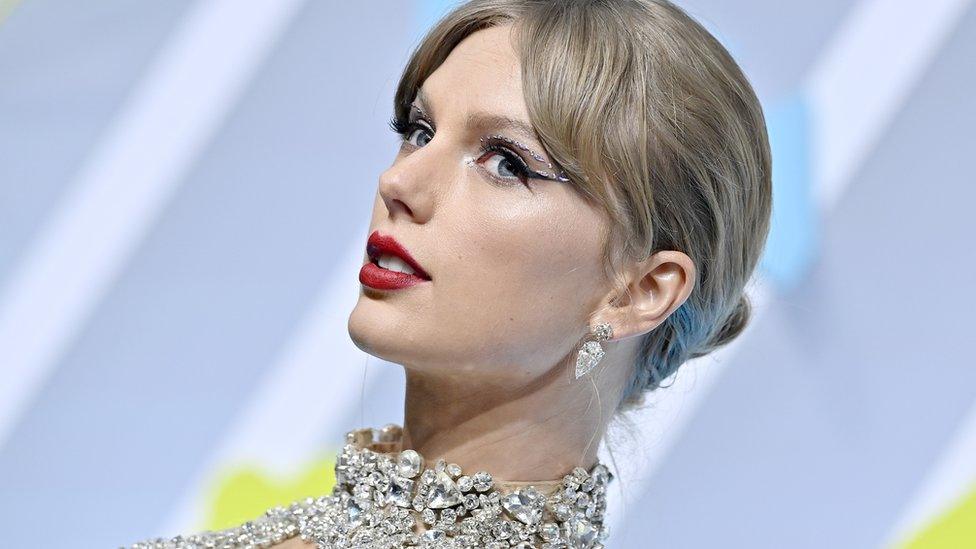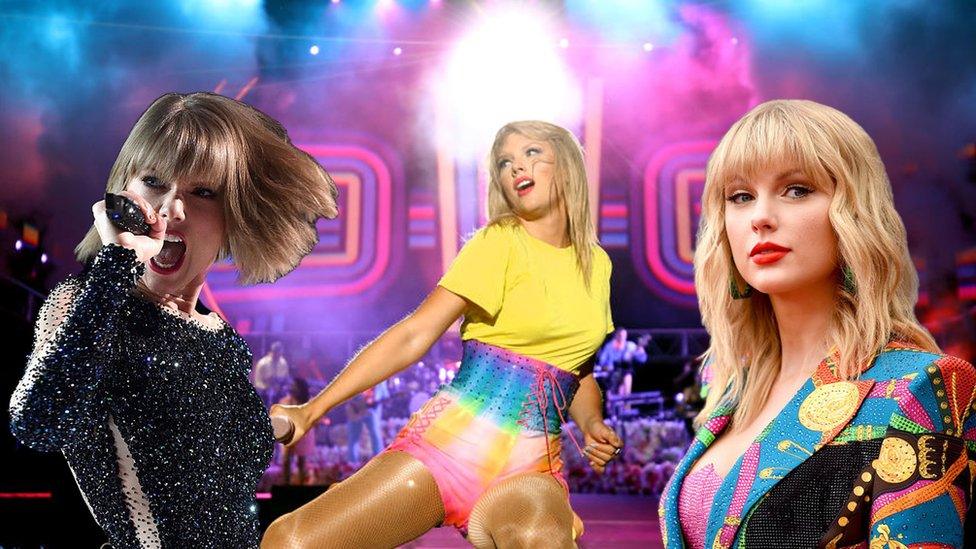Taylor Swift edits Anti-hero video after 'fatphobic' backlash
- Published

The new version of the Anti-hero music video does not show what the scales read
Taylor Swift has edited a music video days after its release, following backlash over one of the scenes.
In the original video for Anti-hero, the singer steps onto a scale that reads "FAT", as her alter ego shakes her head, seemingly in disappointment.
Critics said the scene was "fatphobic" and reinforced negative connotations with the word "fat".
Swift is the latest singer to make changes to new music - after Lizzo and Beyonce edited-out derogatory lyrics.
Anti-hero is one of the tracks off Swift's new album, Midnights. Released last week, it has already broken the record for the most-streamed albums on Spotify in one day.
However its success is, in some parts, being overshadowed by the debate and criticism of the Anti-hero video, which Swift wrote and directed.
"Watch my nightmare scenarios and intrusive thoughts play out in real time," Swift tweeted when revealing the video.
Allow X content?
This article contains content provided by X. We ask for your permission before anything is loaded, as they may be using cookies and other technologies. You may want to read X’s cookie policy, external and privacy policy, external before accepting. To view this content choose ‘accept and continue’.

New York based writer Amanda Richards tweeted: "Why is fat a monolith for failure?"
"I'm sure there's a ton of nuance to Taylor's personal experience, but nuance is not what you get from that scene — instead, you get yet another quick hit reminder that fat is a terrible thing to have, to be, to feel," she wrote in her online newsletter, external.
"And frankly, we just don't need any more of those."

This shot from the music video was removed
However the singer also received praise and support, with many online saying she was simply expressing her own experiences with body image struggles.
"So finally when she is opening up about her insecurities they made her feel like she needs to shut up about them again I hate this world," one Twitter user wrote, external.
Sunny Hostin, co-host of the US talk show The View said critics "missed the point".
"She was describing a personal experience, and quite frankly, it's a personal experience a lot of women experience."
The 11-time Grammy winner has been open in the past about her struggles with body image and an eating disorder. Swift's Netflix documentary Miss Americana features a montage of derogatory comments about her appearance - highlighting the intense scrutiny she faces.
Beat, an eating disorder charity in the UK said it welcomed the edit of the video.
"When public figures like Taylor Swift choose to speak about their own journeys with an eating disorder, it can have a positive influence," said Tom Quin, Director of External Affairs at Beat.
"However, we'd also urge them to be mindful of the effect their depictions could have and to do so sensitively."
Taylor Swift is the latest A-list celebrity who has been pressured to make changes to their work recently.
In June, Lizzo change the lyrics to her song Grrrls to remove an ableist slur, and a few weeks later Beyonce did the same thing to her track Heated.
If you've been affected by any of the issues raised in this story, there are details of organisations that offer advice and support at BBC Action Line.
Related topics
- Published21 October 2022

- Published20 October 2022
